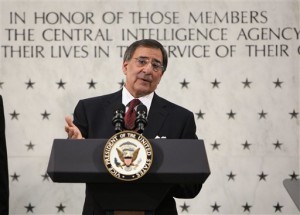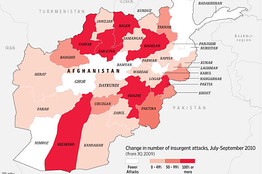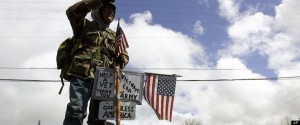India-Pakistan: According to a 109 page Indian interrogation report of the Pakistani-American jihadist, David Headley, officers through senior field grade ranks in Pakistan's intelligence services were involved directly in the 2008 Mumbai militant attacks and intended to control a further split in Kashmir-based militant groups by providing them with a victory, The Guardian reported yesterday, 18 October.
Headley, a Pakistani American originally named Daood Gilani, undertook surveillance missions of the LeT targets in the 2008 Mumbai operation, He said he regularly reported to the ISI, but the Indian interrogation report suggests that supervision of the terrorists by the ISI was often chaotic. Headley also opined that the senior officers of the agency were unaware of the Mumbai operation beforehand.
According to the Indian interrogation report and The Guardian, Headley said he met once with a Pakistan Army “Colonel Kamran” and had a series of meetings with two majors named “Sameer Ali” and “Iqbal” from Pakistan's Inter-Services Intelligence (ISI). A fellow terrorist met with Colonel Shah.” At least one of eight surveillance missions in India as paid for by the ISI, who paid him $25,000.
NIGHTWATCH Comment: The Guardian does not admit that the Indian interrogation report might have been leaked deliberately. In any event, the publication of key excerpts will help justify to the international community the grounds for Indian suspicions and caution in dealing with Pakistan.
Headley might have told the truth, but the Pakistanis he dealt with certainly did not use their real names or affiliations. Headley's confession of involvement in the Mumbai attacks is sufficient to convince India that Pakistanis and Pakistan itself bear ultimate responsibility for the more than 160 dead in Mumbai in 2008.
The most plausible statement by Headley is that he was told the reason for the Mumbai attacks was to unite Kashmiri militant factions that were splintering and to move militant activity out of Pakistan and against India. Otherwise, Headley has a bit for Pakistan and a bit for India.
His allegations, as reported, will reinforce India's conviction that Pakistani officials continue to support the anti-Indian Islamic terrorists. On the other hand, Pakistanis will see other comments as exonerating the Pakistani government from blame by perpetuating the notion of rogue operations within the Pakistani intelligence service.
Any long time student of the Pakistani military hierarchy knows that rogue operations by serving senior field grade officers are all but impossible. Headley told his interrogators what they wanted to hear and hardened viewpoints already set in stone.
Phi Beta Iota: Pakistan is not Israel, India is not the USA, and Mumbai is not the USS Liberty. All signs point to a major decisive Indian attack on Pakistan. As our esteemed colleague notes, there is no such thing as a “rogue” element among Pakistani military officers. They got used to fooling the Americans working for the Central Intelligence Agency (CIA), ripping the USA off of billions intended for Afghanistan, and got cocky about fooling India. Right about now, we hope someone in India is planning the complete eradication of the ISI Headquarters building, in a replay of the successful and measured attack by the USA on the Libyan intelligence headquarters. If Pakistan has a brain, it will eat this one and stand down. At the same time, India needs to be smarter about a regional water authority–Kashmir is about water, not about ethnic anything.





